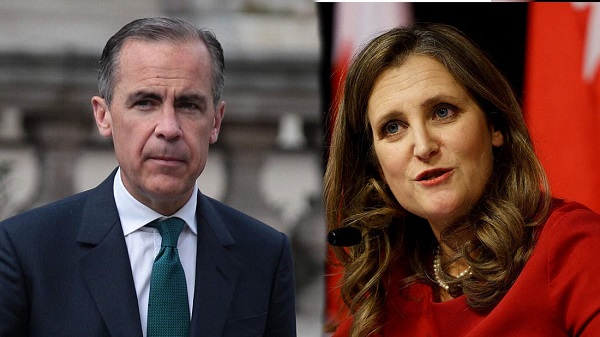Illustration by Daniel Medina

The smartest guys in the room fall for the same scam twice in less than 5 years
THE SCHEME: Fraud and Money Laundering
THE COMPANY: Stenn Technologies
Racket News is a reader-supported publication.
To receive new posts and support my work, consider becoming a free or paid subscriber.
THE NEWS: For the second time in five years, a scam involving sexing up a boring, centuries old financing business blew up in the faces of some of the world’s largest banks
You know the old saying. Fool me once, shame on you. Fool me twice…
In December, “fintech” supply chain financier Stenn Technologies and its subsidiaries Stenn Assets UK Ltd and Stenn International Ltd, collapsed, spanking investors and lenders such as Citigroup, Nexis, BNP Paribas, HSBC and private equity firm Centerbridge. Just a month prior to the blow-up, Stenn was viewed as a fintech unicorn with a robust $1 billion book of business, poised for strong growth.
As we’ve seen time and again, a unicorn can quickly die when a company’s business model screams fraud to anyone bothering to look.
Stenn Technologies claimed to use artificial intelligence and state of the art technology to analyze credit and money laundering risk in order to turn a low margin, supply chain financing business into an awesome, high return, low risk securitized product.
Here’s a quick explanation of supply chain financing:
1. A company delivers its product to a buyer and the buyer promises to pay in a few months’ time, creating an accounts receivable.
2. The company that has the accounts receivable sends it to the supply chain financier (Greensill Capital or Stenn Technologies).
3. The supply chain financier pays the company cash for the receivable minus a discount which is another business practice called factoring.
4. The buyer pays the financier the full amount of the receivable on the due date.
Supply chain financing is nothing new. It was probably around when Marco Polo set out for the Orient.
If it sounds boring, that’s because it is, or at least is supposed to be. Lex Greensill’s Greensill Capital changed that a decade ago.
Through fancy structuring, as well as four private jets, Greensill created a byzantine circular loop where money flowed around the world, much of it to Greensill favorites like steel maker Sanjeev Gupta and then back again. The operation was continuously funded by either GAM, Credit Suisse, SoftBank as well as Greensill’s own German bank, Greensill Bank AG. After a while, as more money poured into Greensill from eager investors, the company began to essentially just lend money out, mostly to Gupta while calling the transactions “future receivables.”
Greensill Capital collapsed under the weight of fraud in 2021, costing its big investors mentioned above billions. Matt reported on the story here in 2021.
Greensill’s receivable notes (the fancy structuring) were insured by a number of insurers, the biggest being Japanese insurer Tokio Marine. The insurance made investors comfortable because, if Tokio Marine insured it, the notes have to be money good, right?
Wrong.
At one point, Tokio had nearly $8 billion of exposure to Greensill deals. How insurers got comfortable with insuring receivables to a blizzard of shell companies that all seemed to point back to Gupta and Lex’s pockets is anyone’s guess, but when Tokio finally did a good look under the hood, they cried insurance fraud and Greensill came crashing down. Credit Suisse investors alone lost $10 billion.
At this point, we need to hear from Lt. Commander Montgomery Scott, better known as Scotty.

So now, we’re at the shame on you portion of the story.
Astoundingly, Stenn Technologies was able to pull off a similar scam just a couple of years later, posing as a fintech company, supposedly using the latest in technology to do global supply chain financing faster and better than everyone else in the business.
The victims are new, but given the high publicity of Greensill’s failure, you’d figure they would catch on.
According to Bloomberg News, “Stenn’s main backers were Citigroup Inc., BNP Paribas SA, Natixis and HSBC Holdings Plc while Barclays Plc, M&G Plc and Goldman Sachs Group also backed the transaction.”
Private equity firm Centerbridge invested $50 million in capital and valued the company at $900 million in 2022.
In 2022, TechCrunch described the secret sauce that Stenn was supposedly using to bring a 13th century business into the modern age.
Stenn — which applies big data analytics, taking a few datapoints about a business (the main two being what money it has coming in and going out based on invoices) and matching them up against an algorithm that takes some 1,000 other factors into account to determine its eligibility for a loan of up to $10 million; and on the other side taps a network of institutions and other big lenders to provide the capital for that financing.
Perhaps this multi-factor algorithm was super cool when they showed it to investors and lending partners. The only problem was Stenn, in the words of a business crime attorney who spoke to Bloomberg, “has all the hallmarks of both fraud and money laundering.”
Greensill might have been a bit hard to figure out with large, respected insurance companies insuring their notes.
But anyone who took the time to investigate Stenn Technologies by simply looking at the data they pumped out to investors weekly would have seen the scheme for what it was.
While it appears the previously mentioned institutional investors didn’t bother to investigate, Bloomberg did and the results were darkly hilarious.
Some of Stenn’s biggest suppliers were tiny companies in Thailand and Hong Kong with little in common yet corporate filings for all of them list the same Russian name as a backer. One in Singapore was accused by the U.S. of enabling payments to Russian naval intelligence and sanctioned in August. Tracing a group owned by another Russian investor that was supposedly shipping millions of dollars of goods to corporations in Switzerland and Canada led to a derelict Prague building with boarded-up windows.
Bloomberg contacted the largest 50 firms that were supposedly the buyers for what Stenn’s suppliers produced, and the bulk had no idea who Stenn Technologies or these suppliers were! A spokesman for Edion Corp., one of the biggest electronics retailers in Japan, told Bloomberg, “we have absolutely no knowledge of this matter. We really have no idea what it’s about.”
Essentially, the data produced by Stenn highlighted thousands of bogus transactions on a weekly basis to investors, lying about who was paying and who was receiving billions of dollars of funds. According to Bloomberg, investors received these details with the name of the suppliers and buyers included. Therefore, at any time, investors could have done a sanity check on these obscure suppliers to see who they were, or in this case, weren’t.
HSBC finally caught up to what Stenn was doing. Again from the Bloomberg report:
HSBC triggered Stenn’s downfall when it lodged an application to the UK courts, alleging that its officials had uncovered ‘deeply troubling issues on a large scale.’ The
invoices at the heart of the deal weren’t ‘genuine debts’ and payments to suppliers weren’t coming from ‘blue-chip companies’ but from bogus firms with similar names, according to the complaint filed by the London-based bank.
Investors are facing a potential loss of $200 million, although it could be a lot more as $978 million in invoiced-financed notes are outstanding, Bloomberg reports.
There is a bright side to Stenn’s collapse though. A senior trade finance official told The Sunday Times:
“The saving grace here is at least it’s smaller than Greensill.”
Well played.
Racket News is a reader-supported publication.
To receive new posts and support my work, consider becoming a free or paid subscriber.
Related

























